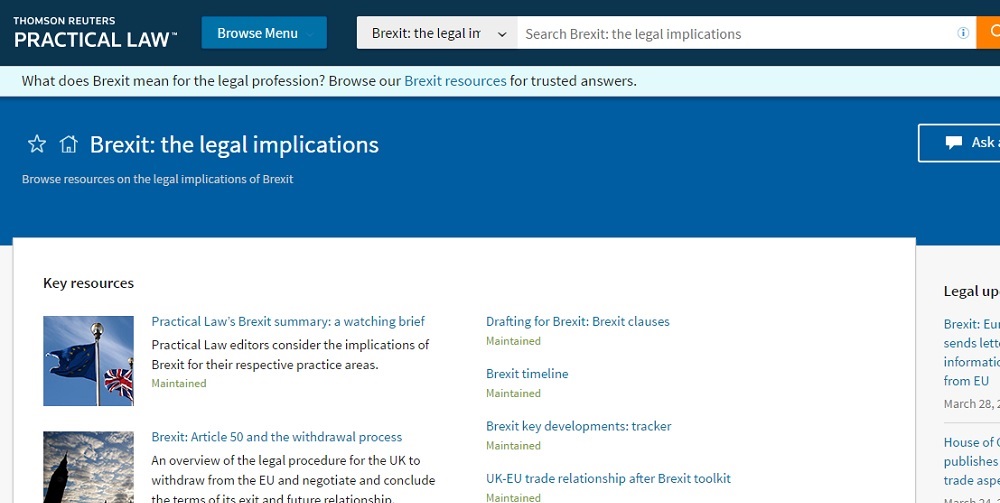Now that Prime Minister May has served the Article 50 notice required to leave the EU, what does this mean for lawyers advising clients in the UK?
Given the scale of the change ahead, the two year ‘run-off’ period until the date the UK leaves on 29 March 2019 (“B-Day”), and beyond, will create a demand for legal advice like nothing we’ve seen before. Although challenging, the notice period presents an opportunity for lawyers to establish, embed or augment their trusted advisor status.
Having given notice, it’s going to be a while before we have certainty over what UK law will look like on B-Day. What will the future trading relationship be between the UK and the EU, as well as between the UK and other countries which have trading relationships with the EU?
The UK Government intends to pass a ‘Great Repeal Act’ that will bring EU Law (which includes EU legislation, case law, and regulatory decisions of European agencies) onto the UK statute book. This Act is expected to trigger an abundance of secondary legislation that will allow the Government to continue to adjust legislation (even after B-Day) to give effect to its overriding objective.
On top of this, the UK Government may choose to pass primary legislation to make deliberate changes to EU Law on B-Day, and may accept that some of these laws will continue to apply as a concession of winning trading access to the EU.
It is likely that all of this will remain in a state of flux until much closer to B-Day, as the big issues up for negotiation may be left until the 11th hour before compromises are made to achieve a final deal.
What should lawyers be doing to prepare clients for B-Day?
It’s likely that law firms are already engaged in providing advisory guidance to clients about their ability to continue trading into the EU and elsewhere, or to remain in the UK beyond B-Day. For particular areas like financial services and life sciences, which rely on passporting schemes for free trade, the stakes are high for securing an environment in which clients can continue trading with Europe. There is an opportunity for law firms to add value to clients with tailored insights on new information that surfaces. Having access to current awareness sources, and tools to automatically gather updates from multiple sources will be key to this endeavour.
 Visit Practical Law’s EU referendum page for the latest Brexit knowhow
Visit Practical Law’s EU referendum page for the latest Brexit knowhow
For corporate counsel, this means an additional stream of activity that must be fitted into the day job, alongside your business-as-usual work. Initially this will require auditing trading arrangements to understand what Brexit risks exist; then introducing new policies and forming contracts to be effective beyond B-Day; and, finally, negotiating changes to existing arrangements to allow for amendments that Brexit makes necessary.
If in-house teams are unable to add resources to cope with the demand, there will be a pressing need to look for efficiencies in the way they work. This might be through using alternative legal service providers, as a more cost-effective flexible resource to the traditional law firm. Alternatively it could be through using drafting automation tools, such as developing a support capability to automate the review of legislative references in documents for currency. This could be a quick win for peace of mind, and this kind of creative thinking will be necessary to cope with a workload that’s set to be bigger and more diverse than ever.
For all lawyers, whether in Government, law firms, the Bar or in the in-house community, having a trusted source of legislation, proposed bills, and other regulatory and guidance materials, with the ability easily to track and view changes proposed or made, will be a critical time saving and assurance tool. Right now, fundamentally nothing changes, in the sense that clients in the UK continue to benefit from all of the rights, and have a need to comply with all of the obligations, as for any other citizen or organisation established in any other member state of the EU. But the challenges will come thick and fast in the two years from now. Lawyers must be ready to face the risks and opportunities presented by the Brexit notice period.
